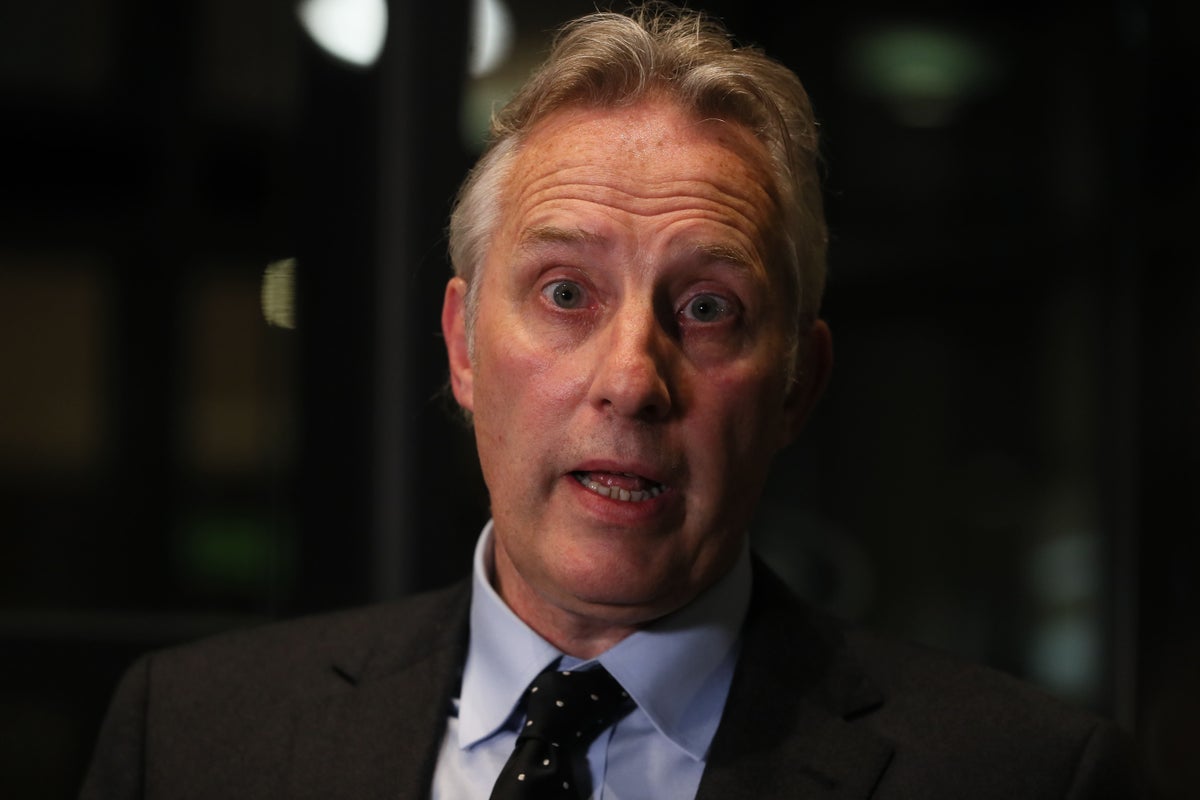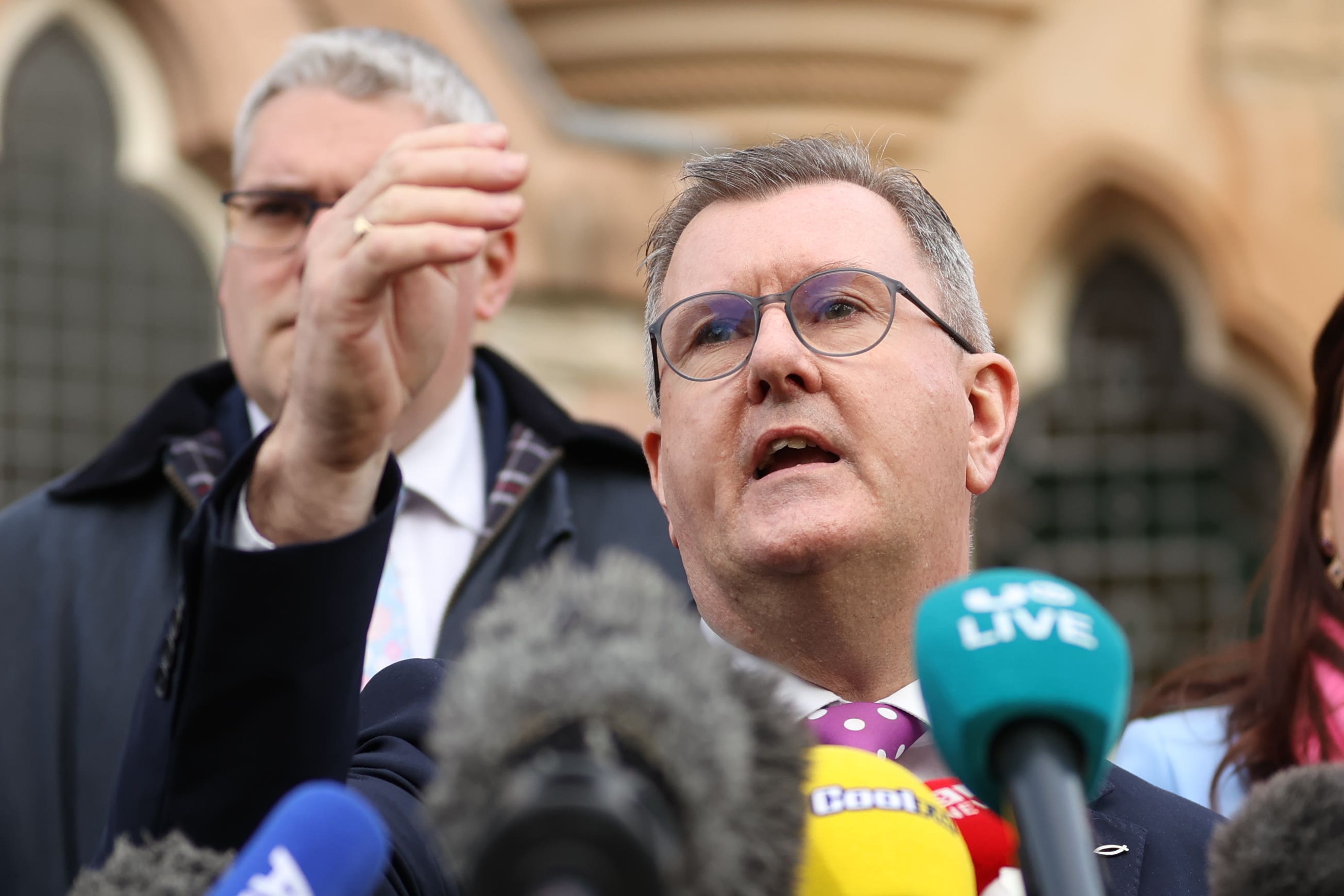
DUP MPs have unanimously agreed to vote against the crucial part of Rishi Sunak’s post-Brexit deal with the EU on the Northern Ireland Protocol this week in a major blow to the prime minister.
The Tory leader faces a crucial Commons vote on Wednesday on secondary legislation that would give effect to a vital part of the framework – the so-called “Stormont brake”.
The brake would allow a minority of politicians at Stormont to flag concerns about new EU laws in Northern Ireland, a move that could see the UK government veto their introduction.
But DUP leader Sir Jeffrey Donaldson said the party had decided to vote against the Stormont brake – saying the Sunak agreement does not deal with “fundamental problems” at the heart of the protocol.
Sir Jeffrey said the Stormont brake “does not deal with the fundamental issue which is the imposition of EU law by the protocol” after Monday’s meeting with colleagues.
Pointing to the unionists’ underlying concerns, he also said the brake “is not designed for, and therefore cannot apply, to the EU law which is already in place and for which no consent has been given for its application”.
The DUP is currently blocking powersharing arrangements at Stormont in protest of the protocol. Party hardliner Ian Paisley MP told the Belfast News Letter earlier on Monday: “I am categorically voting against, and I would be surprised if my colleagues do not join me.”
Mr Paisley, one of the most outspoken critics of the framework, claimed it did not pass even one of the DUP’s seven tests on the protocol.
He said Mr Sunak’s compromise was the “same old substance dressed up in a new package with a ribbon around it”, adding: “It hasn’t actually changed, or addressed the fundamental issue of Northern Ireland trade being disrupted in our internal UK market.”
While Wednesday’s vote will be a key moment, the DUP has set up a special panel to examine all the details of the Windsor Framework before the party decides whether to return to Stormont.

Tory Brexiteers in the European Research Group (ERG) have not yet offered a formal verdict on the protocol compromise, as it prepares to publish a report by its “star chamber” of lawyers on Tuesday morning.
But the ERG is widely expected to give the deal a thumbs down. The Tory hardliners will dismiss the so-called Stormont brake as “unusable”, according to The Times – warning that any block would have to be ultimately agreed by the EU.
Tory MPs in the ERG also claim that the Windsor agreement could stop the UK from diverging from Brussels’ rules because of new barriers between Britain and Northern Ireland.
Boris Johnson said earlier this month that he would find it “very difficult” to vote for the deal in parliament, while ex-cabinet minister Jacob Rees-Mogg had suggested many Brexiteer MPs would want to follow the DUP’s lead.
The PM could be forced to rely on Sir Keir Starmer’s Labour party if close to 40 Tory rebels embarrass the government by opposing the Stormont brake on Wednesday. Mr Sunak’s spokesman said No 10 believes the brake to be “the most significant element” of the UK-EU deal.
The statutory instrument on the brake is due to be published on Monday ahead of Wednesday’s vote. Although future votes on other aspects of the deal are expected, Sir Jeffrey said Wednesday’s vote will be read as “indicative” of the party’s position on the wider agreement.
The DUP leader again called for “further clarification, re-working and change” to the deal with Brussels – something Downing Street has ruled out.
Foreign secretary James Cleverly has announced that he will meet the EU’s Maros Sercovic in London on Friday to formally adopt the Windsor pact.
The protocol was designed to prevent hardening of the land border on the island of Ireland and moved regulatory and customs checks to the Irish Sea, creating economic barriers to the movement of goods between Great Britain and Northern Ireland.
The UK and EU agreed the framework as a way to cut the red tape created by the protocol and give a greater say to Stormont on changes to goods rules.







